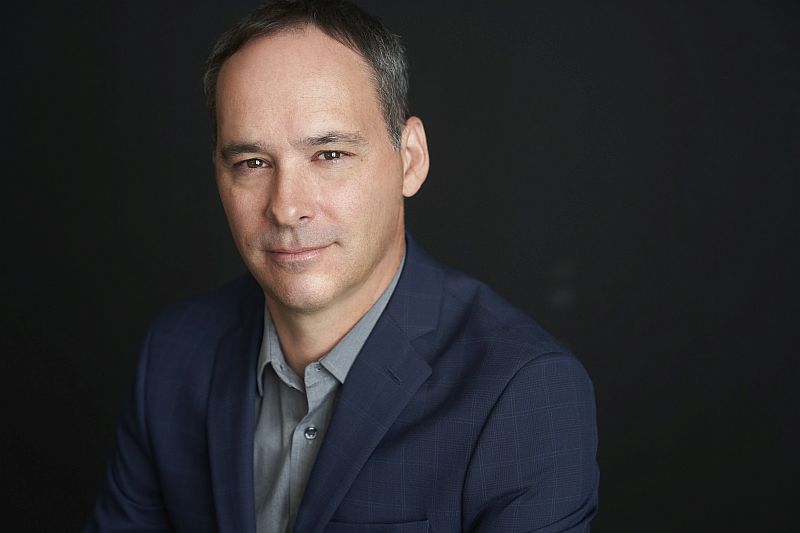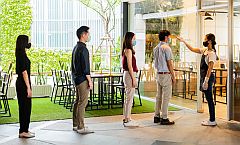
Photo of Robert Tsonos, taken by David Leyes
A New Vision by Robert Tsonos
Dear Watermark Theatre Patrons and Supporters,
This past year has been transformational. I do not believe any of us can look at our lives, our communities, or the world the same way we did prior to March, 2020. The financial hardship, emotional turmoil, and collective stress endured during this past year have been tremendous. There has also been an enormous amount of change for the good. People have re-evaluated their lives, made significant changes for the better, and prioritized family, health, and their own mental well-being. We have also seen incredible calls for social justice and now look at diversity, equality, and our own behaviours and beliefs in a new light.
Theatres across the country have used this time to re-evaluate what it means to create art, whose stories should be told on our stages, and what role theatre plays in our society. We have had time during this pandemic to look inward and think about why we do what we do.
Since its inception 13 years ago Watermark Theatre, and under its previous name The Montgomery Theatre, has produced classic and modern classic plays. There have been a few exceptions – The Canada 300 Project, What to Wear to the Birth of a Nation – but the company originally produced plays written during the lifetime of LM Montgomery (1874 to 1942), and more recently, plays written more than 50 years ago.
Given the time to reflect during this pandemic, in light of the Black Lives Matter movement, and my own conscience, I have decided with the full support of our board of directors to open the theatre’s mandate to include contemporary plays reflecting the times in which we live. I do not make this change lightly, knowing that the founders of the theatre created a classical theatre company in a rural setting believing that was what the Island needed at the time.
But times change and we must adapt and grow. Classic and modern classic plays are almost entirely written by white men, about white people, living in white societies. A narrow viewpoint that is not inclusive and not always reflective of our society in 2021.
In addition to contemporary plays, I will continue to produce what I am now calling “time-honoured” plays – those that remain relevant and reflect who we are as Canadians. There are beautifully written plays that continue to explore the human condition, remind us where we have been, and shed light on our own lives.
We have also made other changes to our theatre to modernize our building and to be more inclusive.
With the help of Rural Development PEI and Heritage Canada we have recently completed a large sustainability project updating our theatre lighting instruments to more energy efficient units, insulating and fortifying parts of our building, and installing a heat pump in our office and box office area. We will also start looking at how we design, build, and dispose of set, prop, and costume pieces to make sure we are being as environmentally responsible as possible.
Another change, is that all public bathrooms in our building will now be gender neutral, a further step in our goal to becoming as inclusive and welcoming to everyone as possible.
With all that being said, I now present to you the new mandate of the Watermark Theatre:
Located in North Rustico, PEI, on land that is the traditional unceded territory of the Mi’Kmaq, the Watermark Theatre is a professional theatre company that produces time-honoured plays, as well as contemporary plays that resonate with our times.
As a company we are led by the principles of inclusion, diversity, equity, and accessibility and commit to incorporating these core values in everything we do.
We prioritize environmental stewardship and sustainability.
The Watermark Theatre is dedicated to the development of the next generation of theatre artists and arts administrators through mentorship and professional training.
In all of our programming we strive for artistic excellence while endeavouring to inform, affect, and engage our audience and our community.
Our 2021 summer season will be announced in early March and you will see some of these changes clearly reflected in my programming choices.
I look forward to seeing you all this summer at the new and improved Watermark Theatre.
Until then, be well and stay safe.
Robert Tsonos
Artistic Director

















